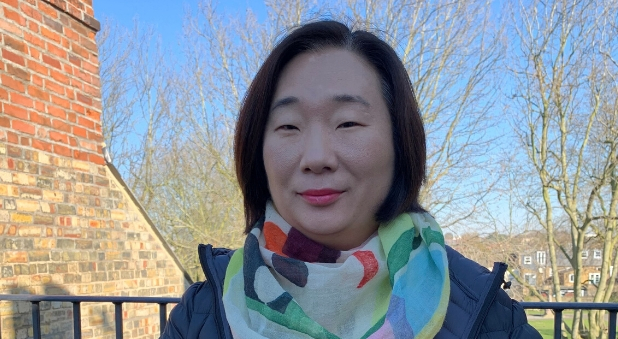Fear. There’s plenty of it going around these days. As the death toll mounts and intensive care beds fill, as supermarket shelves empty of everything and police are called to patrol the aisles, it is understandable for anxieties to take hold.
For some, that fear has turned to anger and blame against people who look like me. It feels like with the rise of COVID-19 that people of East Asian descent, whether Chinese or not (I’m not), have a target on their backs.
In London, where I live now, I’ve been on the receiving end of strange looks. Some have moved away from me on public transport. Another covered his nose and mouth with his jumper as soon as he saw me. Then there is the close proximity coughing by strangers that is just enough to feed my paranoia, but not overt enough to call it a deliberate act.
It’s not a great feeling.
At home in Sydney there has been talk of people deliberately coughing on elderly Asian Australians and calling them “Coronavirus”. In Chinatown, one man died of a heart attack with no one coming to his aid for fear he had COVID-19. Then there are instances of overt racist talk on public transport, which I fear is becoming too common. A Sydney-based friend got on a train and sat down, only to have the man in front of her say, in a loud whisper, to the woman he was with: “Be careful – an Asian just sat behind us”.
Falling into the anger trap
I’m not sure about other Christian brothers and sisters in the same situation, but it’s at times like these that I struggle with anger. My automatic reaction is not to be patient and kind but retaliate with righteous fury. Godliness goes out the window as I want to bite back, “It’s not fair. This hurts. You’re a racist moron”.
I give in to it, more often than I rise above it, because in my mind that idiot deserves a good whack on the nose. And in that moment of anger, I fail to do good to my enemies.
I need to look outside my immediate discomfort and remind myself these people are scared. So scared their capacity to love others is diminished. They are objects of pity and compassion more than they are to be feared or hated.
As I look to the cross, I remember Jesus’ words as he was crucified: “Father forgive them, for they know not what they do”. The world despised him but, even as he was dying, our Lord was thinking of us. Begging our Father God to forgive us.
Love our enemies
We Christians are therefore privy to a great truth. We are loved beyond life itself. It is there in the costly grace shown to us by our God. Such love should transform us to love others. Especially when life gets difficult.
Jesus said, “love your enemies, do good to those who hate you, bless those who curse you, pray for those who abuse you”. This isn’t some passive aggressive blessing or praying he is commanding us to do. We are to be genuinely caring for our racist abusers. Looking beyond our own pain and anger to their welfare.
It is difficult to do. But do it we must because God, who loves us so much, commanded us to get out there and love those who hate us. Just as he loved us who hated him so.
Finding forgiveness
Loving others without forgiveness can be difficult. Unfortunately, I have a long memory. I can “forgive”, but I may never “forget”. There is even a specific word for it in Korean. Han. A loss or pain so deep that people say is carried beyond the grave.
God’s forgiveness is not like that. Our wrongs are no longer counted against us at the foot of the cross. We are forgiven completely when we repent, and God remembers our sins and our lawless deeds no more. We are to forgive others, because we have been forgiven much.
All I can say is I am trying. Desperately. But I swear, if another person without this lived experience comes up to me and tells me I must forgive my racist neighbour, I am going to be somewhat grumpy.
Please pray for God to help Christian brothers and sisters who are now subject to racist behaviour to keep looking to Christ on his way to the cross. To see how he was despised but endured it all for our sake. Help us to love others as we are loved. Please also pray for the people who hate us, that they will know God’s peace and love in every way and be transformed.
Agnes Wilson worked with Anglicare Sydney for 16 years. She and her family now live in London.






















